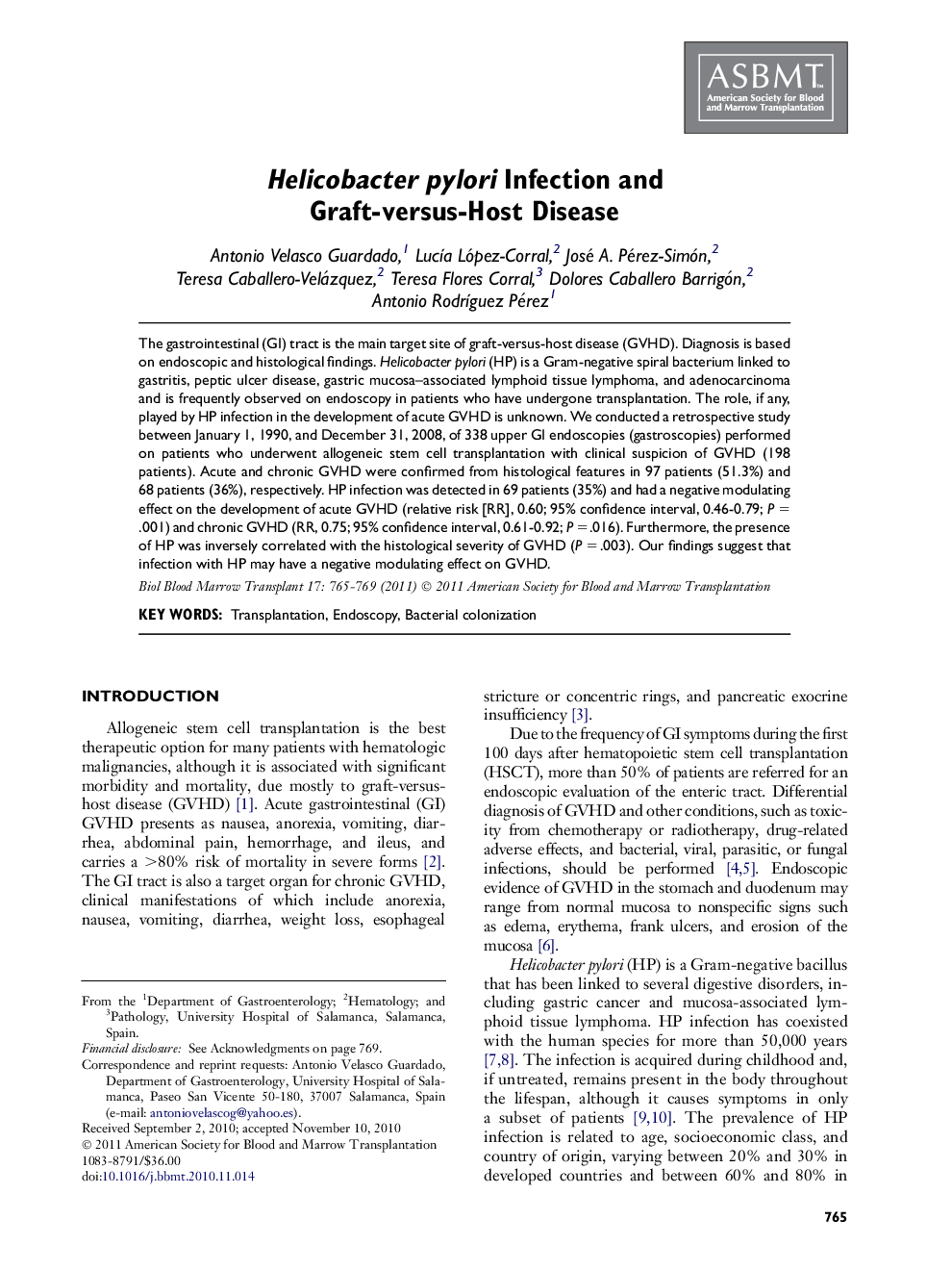| Article ID | Journal | Published Year | Pages | File Type |
|---|---|---|---|---|
| 2105537 | Biology of Blood and Marrow Transplantation | 2011 | 5 Pages |
The gastrointestinal (GI) tract is the main target site of graft-versus-host disease (GVHD). Diagnosis is based on endoscopic and histological findings. Helicobacter pylori (HP) is a Gram-negative spiral bacterium linked to gastritis, peptic ulcer disease, gastric mucosa–associated lymphoid tissue lymphoma, and adenocarcinoma and is frequently observed on endoscopy in patients who have undergone transplantation. The role, if any, played by HP infection in the development of acute GVHD is unknown. We conducted a retrospective study between January 1, 1990, and December 31, 2008, of 338 upper GI endoscopies (gastroscopies) performed on patients who underwent allogeneic stem cell transplantation with clinical suspicion of GVHD (198 patients). Acute and chronic GVHD were confirmed from histological features in 97 patients (51.3%) and 68 patients (36%), respectively. HP infection was detected in 69 patients (35%) and had a negative modulating effect on the development of acute GVHD (relative risk [RR], 0.60; 95% confidence interval, 0.46-0.79; P = .001) and chronic GVHD (RR, 0.75; 95% confidence interval, 0.61-0.92; P = .016). Furthermore, the presence of HP was inversely correlated with the histological severity of GVHD (P = .003). Our findings suggest that infection with HP may have a negative modulating effect on GVHD.
